I joke with Alex Segura that he is The Nicest Guy in Crime Fiction™—except it’s not really a joke. He’s consistently one of the best representatives for crime fiction imaginable: speaking out for under-represented voices, supporting up-and-coming writers, and promoting social justice, while remaining funny, good-natured, a delight to know, and an honor to call a friend.
Alex does all of this while being one of the busiest writers in the business. Starting out in the comics industry in the early 2000s, Alex has worked for some of the biggest publishers, including DC, Archie, and Oni. His Pete Fernandez novels were nominated for multiple Anthonys, and he’s a two-time Anthony winner in the short story category.
But his breakout book might be 2023’s SECRET IDENTITY, where Alex blended his love of comics and crime fiction with a vivid picture of 1970s New York and the journey of a young Latinx woman trying to break into the comics industry. Nominated for multiple awards, it received the L.A. Times Book Prize for Mystery/Thriller.
Alex’s latest is ALTER EGO—a standalone sequel to SECRET IDENTITY, set in today’s cutthroat comics world that seems more concerned with IP than storytelling. It’s the epitome of a novel only Alex could write, filled with the compassion, insight, and story twists he brings to all of his work.
Alex is also the latest Five for Them, One for Me.
Let’s go.
FIVE FOR THEM
1. What was the origin point (or origin story, you could say) for ALTER EGO?
Ironically, at one point, I think the title for ALTER EGO was SECRET ORIGIN! But my editor, Zack Wagman at Flatiron, quickly dissuaded me of that. Which was smart.
But back to your question. I’ve said this a few times elsewhere, but I had always envisioned SECRET IDENTITY, my LA Times Book Prize-winning novel set in the 70s comic book industry, as a standalone. I felt like Carmen Valdez’s story, as a protagonist was complete. But after I turned in the manuscript (third or fourth pass), Zack very wisely said “well, don’t we need to see where Carmen is now? And what happened to the Lynx?” It made sense, but Zack’s other statement would come to haunt me: “Maybe there’s another story in there.” ALTER EGO is that other story. But what made it harder to write is that I didn’t want it to feel like a traditional sequel, i.e. we pick up a few days later and more hilarity ensues, etc. I wanted it to feel like it was in conversation with SECRET IDENTITY, and I wanted it to reside in the same world, but I also didn’t want to just go back to the well because I could, you know? So, while the broad strokes of an idea were there - a modern-day mystery set in today’s comic book world - nothing would happen without a compelling character. And a DIFFERENT character from Carmen, who I loved and admired and didn’t want to rehash. So, for all intents and purposes, the origin moment for ALTER EGO was when Annie Bustamante showed up in my head - and she was so unlike Carmen, but so interesting, and I knew I wanted to follow her around and learn her story.
2. In addition to the mystery at the core of ALTER EGO, in the book you talk about the artistic process, the demand for IP in modern storytelling, and the influx of artificial intelligence. How do you keep the drive of that main narrative while balancing other issues that feel both relevant and personal to you as an author?
I think, as writers, we have to really trust ourselves - and by that I mean, believe in that adage: write the book you want to read that only you can write. That’s ALTER EGO for me now. I want to read about generational trauma, parenting, IP, creative struggles - those are things that fascinate me. I also love the mystery/thriller genre, so being able to blend the two…well, that’s the kind of book I’d love to read. The guarantee there, that I can tell other writers is 100 percent true is, that others want to read it. There are lots of people that share your passions and interests. So, instead of trying to triangulate which trend might still be functional when your book hits, lean into your own weirdness. You’ll find it’s not as weird as you think.
3. Your work in comics is so well known, and there are few mediums more collaborative. You’ve also worked with other authors on projects, including collaborations with Rob Hart and Dave White. Talk about this process, and how it’s different when you’re working solo.
I love learning new tricks, and I love seeing people adapt or riff on my work. I used to work in newspapers and magazines and publicity, so that created a sense of not being super precious about my words. Sure, like anyone else, I have an ego - and there are certain things I don’t want changed, but I do want to get better. I like to think I’m open to feedback and notes. In terms of collaborating, I like jamming with people who aren’t coming at it from an ego perspective. Rob and I get along well because we were both journalists, so the best idea always wins. But for me, every collab is different. I get a peek at another writer’s process and the end result is always new - unlike anything I could’ve done alone. You also hope that it’s a two-way street, and your collaborator is gaining something from you. In terms of who I collaborate with - I am drawn to talented friends. People I like personally who create work I admire.
4. You’re probably one of the busiest writers working, with a variety of projects coming down the pipeline, from new novels to comic books to events with other authors. How do you keep so many projects moving? What’s your organizational secret?
I wish I had one! I just keep a running tally of what I’m working on and when the next thing is due. I’ve been blessed with a sharp multitasking ability, so I’m able to pivot from, say, a novel to a comic to an event etc. with minimal wear and tear. But the secret is I just love the work. I like creating stories, whether mine or with characters I love. I have the best job and work with the greatest people.
5. In addition to your own award-winning novels, you’ve written for licensed IP, including comics (Marvel’s Spider-Man, DC’s The Question), YA (ENCANTO: NIGHTMARES AND SUEÑOS), and novels (the Daredevil novel ENEMY OF MY ENEMY). What are the challenges of working in IP, and what do you enjoy about it?
The fun part of IP work is adding to the mythos - and being recognized for whatever you add. My favorite moment at a convention ever was when a reader, dressed in a Spider-Man 2099 costume, came up to my table and said Araña/Spider-Man 2099: Dark Tomorrow was her favorite book. Not favorite superhero novel. Not favorite licensed book. Book. Period. It blew my mind. I love when people recognize that you’ve poured yourself into the work, even if the characters are not yours. If I love a character - whether it’s Renee Montoya, Daredevil, Spider-Man, Star Wars, or whatever - I will do my best to find my voice in that character’s history. I’ll try to be additive and tell that story I’ve been clamoring to tell. I’ve had to turn properties away because I don’t have that connection to it, and I’d feel disingenuous trying to fake it. So, that’s the fun - you literally get to play with the toys you grew up with. The challenge, though, is that you’re often dealing with IP that’s decades old - with iconic histories and long backstories. But like anything else, it’s just finding your lane and trying to tell a story that doesn’t, again with the metaphor, break the toys - because someone else deserves and is going to get their shot - but also honors what came before and does something memorable. It’s a tough needle to thread.
ONE FOR ME
ALTER EGO is rife with Alex Segura Easter eggs, from comic books to indie music to shout-outs to other writers and their work. My favorite, however, is when someone asks the character Annie “are you okay?” (I laughed for five solid minutes at that.) Outside of your own work, what’s your favorite pop culture Easter egg?
Ha! I love that you caught that. And as a writer, I love the metafictional stuff. In ALTER EGO, a lot of the books and movies mentioned are just other things in my, well, library—Dark Space, The Awakened, etc. You name it. I like to pretend it all happens in one, big, shared universe. This isn’t an Easter egg, per se, but I love, love, LOVED Roger Rabbit as a kid; the idea that all these cartoons could exist in one shared universe…it blew my mind. I know it’s a legal minefield now to get anything like that happening, but I’m a sucker for different iterations of a character interacting or unexpected IP crossing over. It’s just FUN. And that’s why we do it, right?
CHICAGO NOIR AT THE BAR
If you’re in the Chicago area, you’re not gonna want to miss this.
The Midwest Mystery Conference is presenting a Noir at the Bar tonight, 7-9 p.m., at Eris Brewery and Cider House. Hosted by the awesome Lina Chern, and absolutely stacked with a who’s who of Chicago-area crime writers. I’ll be attending to root along several friends, but also to shamelessly fanboy.
That’s all we’ve got for now. Thanks for coming. See you next time, and hey, let’s be careful out there.




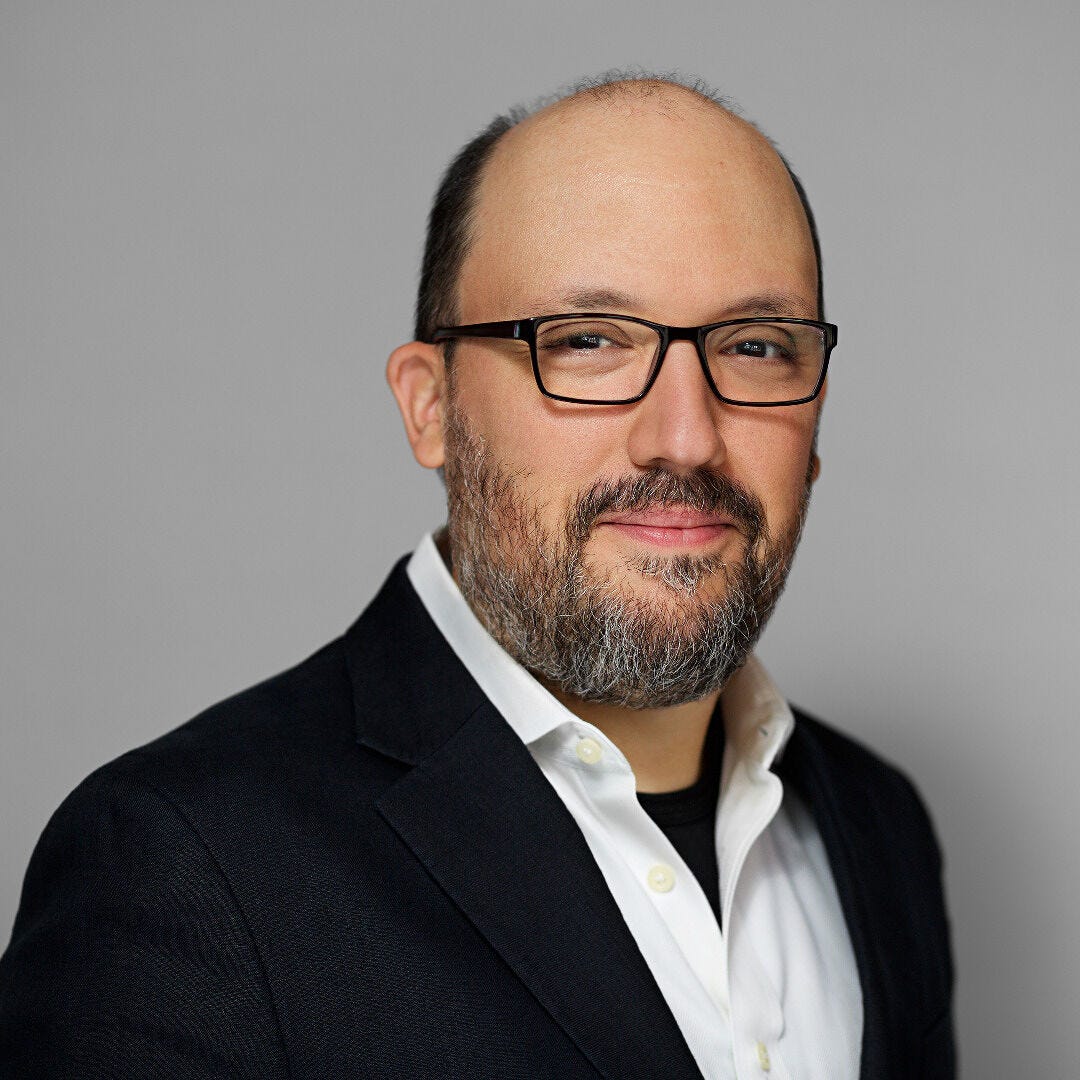

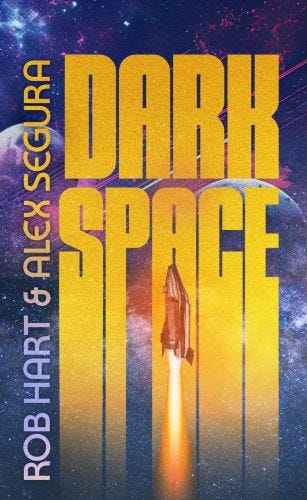
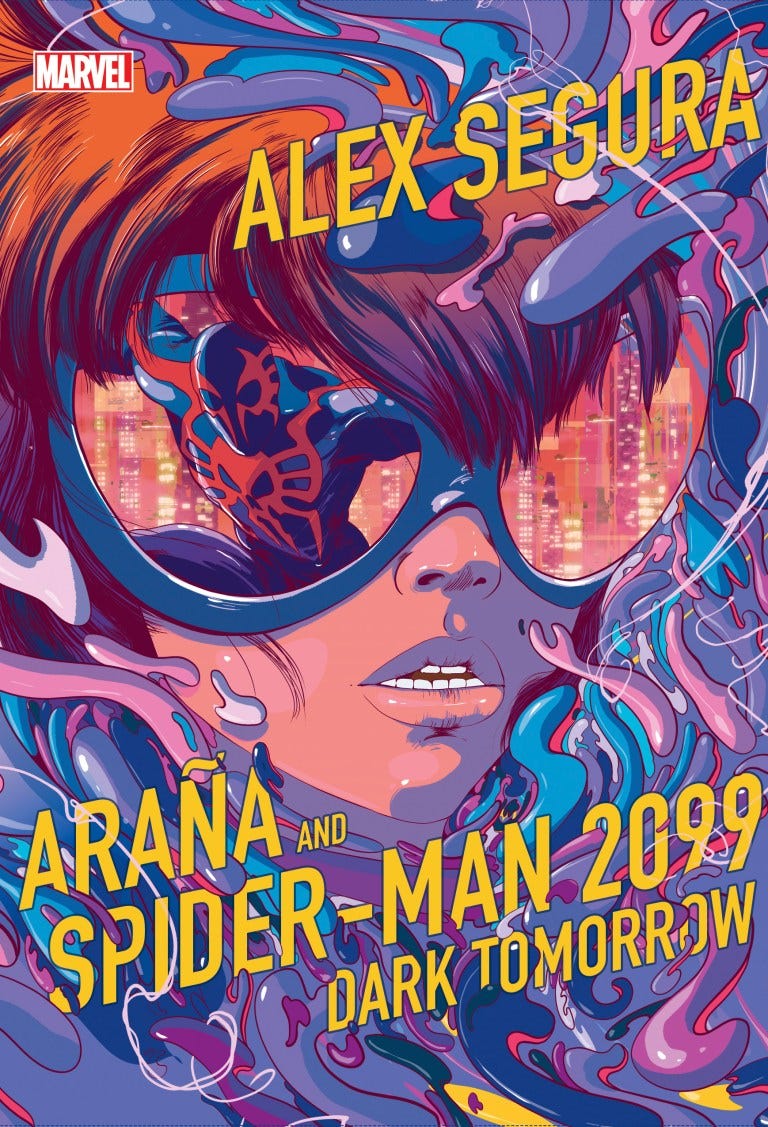
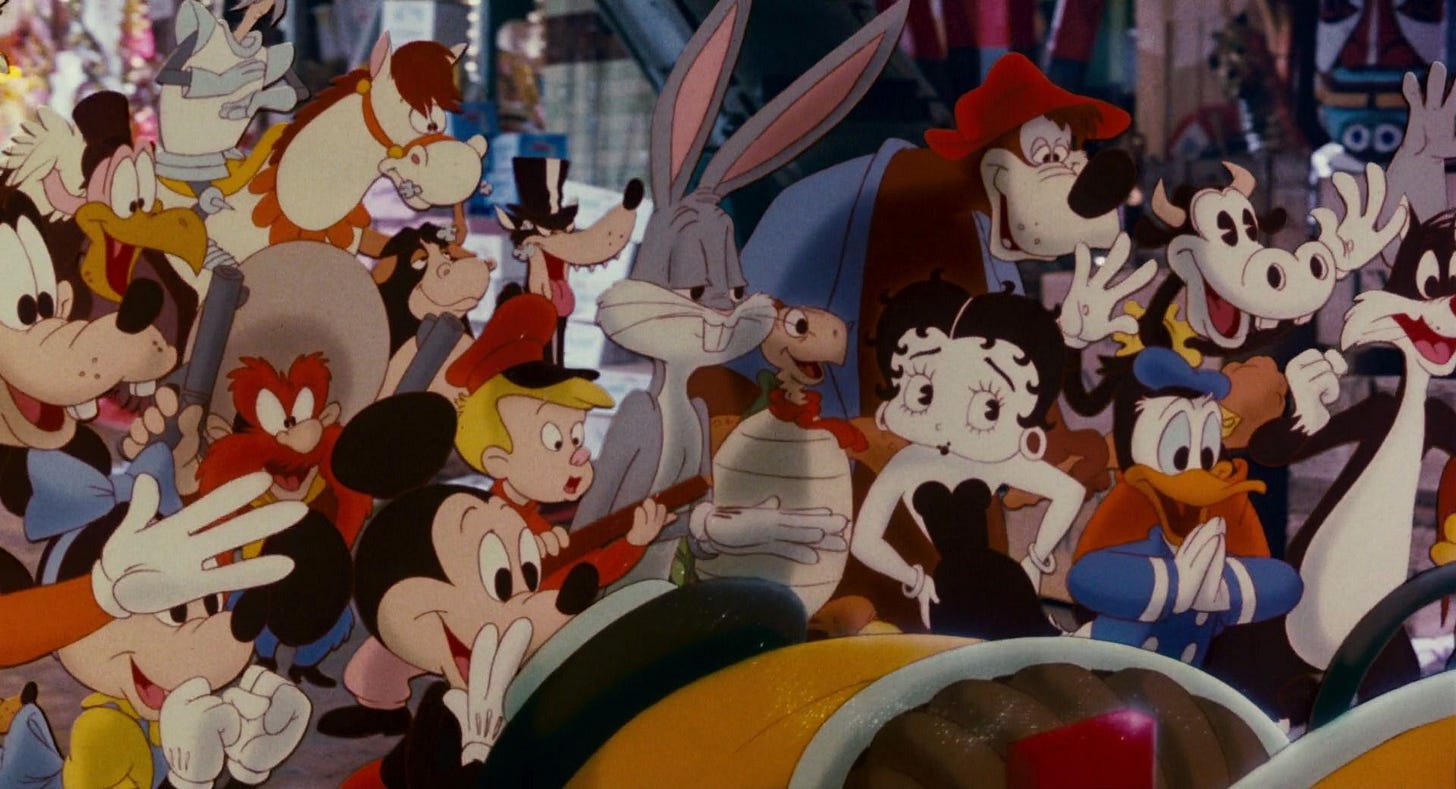
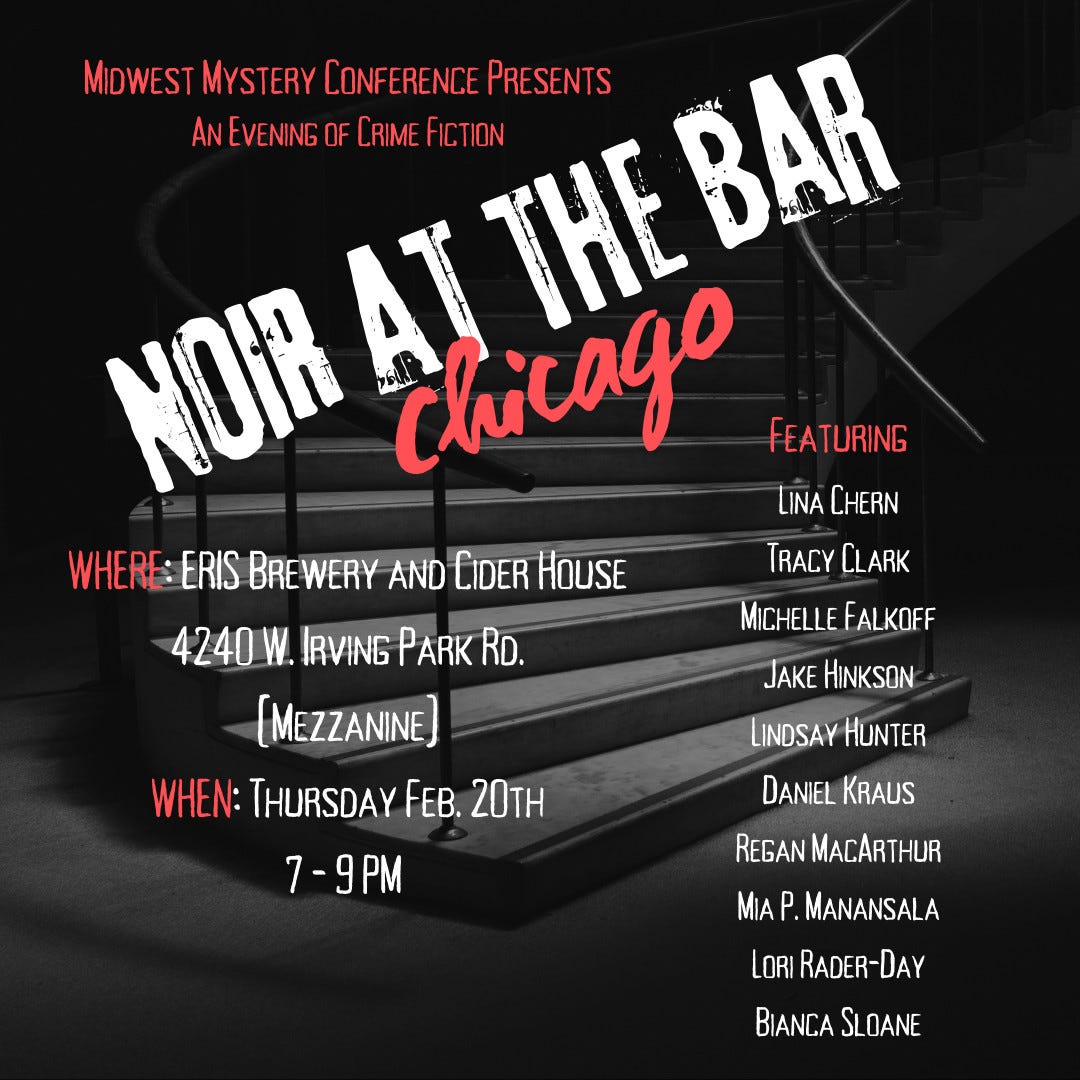
Supremely talented guy. Love his work.
Great interview! Alex is multi-talented and it's always good to get his insights.